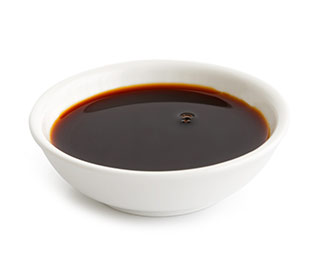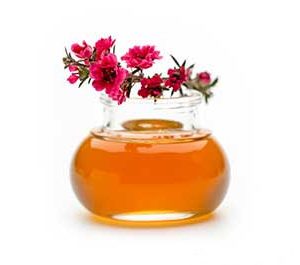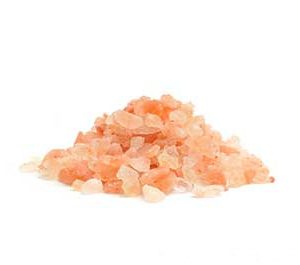Worcestershire sauce has been a condiment staple in many kitchens worldwide. Even though it’s commonly used, many people are unaware of how it’s made or what ingredients are used. Even its pronunciation remains a mystery to some.
Adding a dash or two of this sauce to your dish is guaranteed to give it a burst of flavor, but have you ever wondered if it’s good for your health? Read on to learn more about Worcestershire sauce, its nutritional profile and how you can make a healthier version of it at home.
What Is Worcestershire Sauce?
Known for its tangy flavor and pungent odor, Worcestershire (pronounced as “woo-stuh-sher”) sauce is a brown liquid condiment whose culinary roots can be traced back to India, although it was originally created in the city of Worcester, England back in 1835.
The story goes that an English nobleman named Lord Marcus Sandys returned home to England after governing Bengal, India. He brought home with him a recipe of an Indian sauce and asked local chemists, John Lea and William Perrins, to make a condiment that tastes similar to it. They created the sauce and kept some of it to sell in their shop, but they found out that it smelled and tasted awful.
They stored the concoction in a cellar where it laid forgotten until it was rediscovered more than a year later. The two chemists decided to taste it again and found that it had turned into a savory sauce. The original Worcestershire sauce went on sale in 1837 under the Lea and Perrins brand. Since then, many people have wondered what makes Worcestershire sauce so flavorful.
The exact ingredients of this sauce are yet to be revealed, but it basically consists of anchovies, malt and spirit vinegar, tamarind extract, onions, garlic, salt, cloves, water, molasses, sugar, and chili pepper extract. It may also include lemon juice, soy sauce, peppers and pickles.
The American version of this sauce uses white vinegar instead of malt vinegar and high-fructose corn syrup instead of sugar.6 The mixture is fermented for 18 months.
Even though it undergoes the fermentation process, Worcestershire sauce is not exactly a healthy ingredient because of its high sugar content, which may cause you to exceed the recommended daily sugar intake, predisposing you to obesity and chronic health problems . You might want to think twice before dousing your grass fed beef with this sauce, as it may cancel out the benefits of your healthy diet.
Worcestershire Sauce Uses
Aside from being a popular ingredient in marinades, Worcestershire sauce is also commonly used in:
- Drinks
- Soups and chilis
- Salad dressing
- Meat stews and braises
- Dips
Worcestershire Sauce Nutrition Facts
If you want to know more about the nutritional profile of Worcestershire sauce, check out the nutrition facts table below:
| Worcestershire Sauce
Serving Size: 1 tbsp — 17 g |
||
| Amt. Per Serving |
% Daily Value* |
|
| Calories | 13.4 kcal | 1% |
| Calories from Fat | ||
| Total Fat | 0g | 0% |
| Saturated Fat | 0g | 0% |
| Trans Fat | 0 g | |
| Cholesterol | 0.0mg | 0% |
| Sodium | 168.4mg | 7% |
| Total Carbohydrates | 3.3g | 1% |
| Dietary Fiber | 0g | 0% |
| Sugar | 1.7g | |
| Protein | 0g | 0% |
| Vitamin A | 0% | |
| Calcium | 2% | |
| Vitamin C | 4% | |
| Iron | 5% | |
*Percent Daily Values are based on a 2,000 calorie diet. Your daily values may be higher or lower depending on your calorie needs.
Worcestershire Sauce Substitute if You Don’t Have It on Hand
If you’re looking for a healthier alternative that can improve your dish’s flavor profile the same way that Worcestershire sauce does, then you should consider substituting it with equal amounts of traditionally made soy sauce.
Although these two condiments don’t taste exactly the same, using traditionally made soy sauce still a healthier way to lend your dish flavor. You may also opt to replace Worcestershire sauce with fish sauce, as they’re both made from fermented anchovies.
How to Make Worcestershire Sauce
The original version of Worcestershire sauce that’s commonly sold in groceries gets its strong taste from anchovies and contains high amounts of sugar. It’s not something that you’d want to add into your meals if you’re reducing your sugar intake.
The good news is that you can make a healthier version of it at home — this gives you better control of the ingredients, allowing you to create a sauce that matches your taste and dietary preferences. This Worcestershire sauce is also vegan-friendly, as it does not contain any animal products:
Homemade Worcestershire Sauce Recipe
| Ingredients: | ||||
| 1/2 cup organic apple cider vinegar | 2 tablespoons water | 2 tablespoons coconut aminos | ||
| 1/4 teaspoon ground mustard | 1/4 teaspoon onion, minced | 1/4 teaspoon garlic, minced | ||
| 1/4 teaspoon ground ginger | 1/8 teaspoon ground cinnamon | 1/8 teaspoon black pepper | ||
Procedure:
- Combine all of the ingredients in a saucepan and mix them well using a whisk.
- Bring to a low boil over medium heat, then reduce heat and simmer for one to two minutes.
- Set aside to cool, and then transfer it in an airtight container. Store the sauce in the refrigerator.
Should You Add Worcestershire Sauce to Your Cooking Arsenal?
There’s no denying that Worcestershire sauce is a versatile condiment, but with molasses, sugar and high-fructose corn syrup as some of its potential ingredients, it may be better for your health if you avoid the original version of this sauce.
If you still want to use it to flavor your dishes despite its potential health consequences, make sure that you only add it in small amounts to avoid exceeding your daily sugar intake. You can also make your own healthy version of Worcestershire sauce using the recipe mentioned above.
Frequently Asked Questions (FAQs) About Worcestershire Sauce
- Is Worcestershire sauce gluten-free?
- The original version of Worcestershire sauce is not gluten-free, since it contains malt vinegar, which is extracted from malted barley that’s brewed into ale and then fermented.15 However, there are gluten-free versions of Worcestershire sauce available nowadays, which is suitable for people with celiac disease or gluten sensitivity. The homemade recipe above is one example.
- Does Worcestershire sauce go bad?
- Yes, the flavor, odor and appearance of Worcestershire sauce may eventually degrade, especially if it’s not stored properly. If stored properly, the usual shelf life of an opened bottle of Worcestershire sauce is two years.







Reviews
There are no reviews yet.